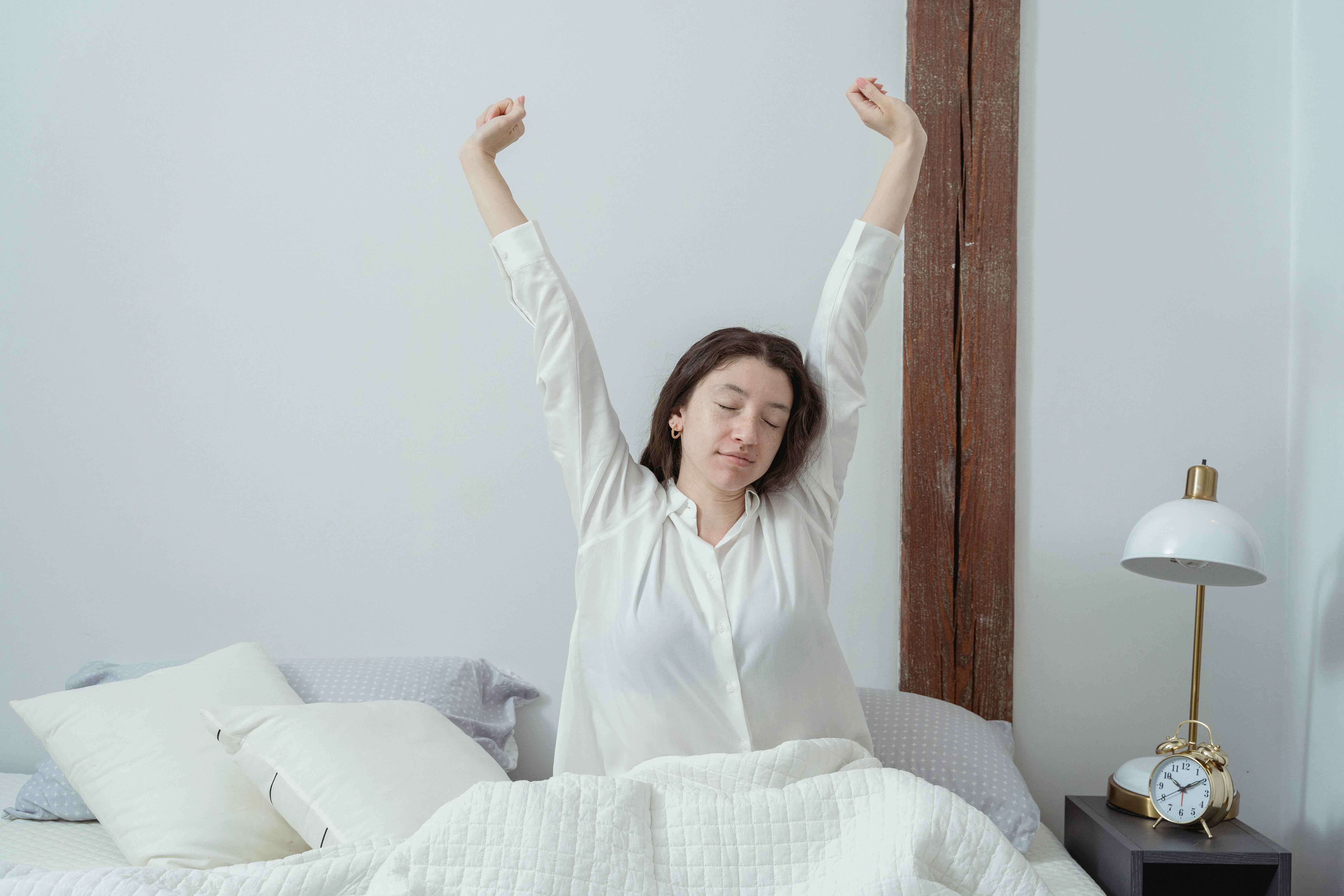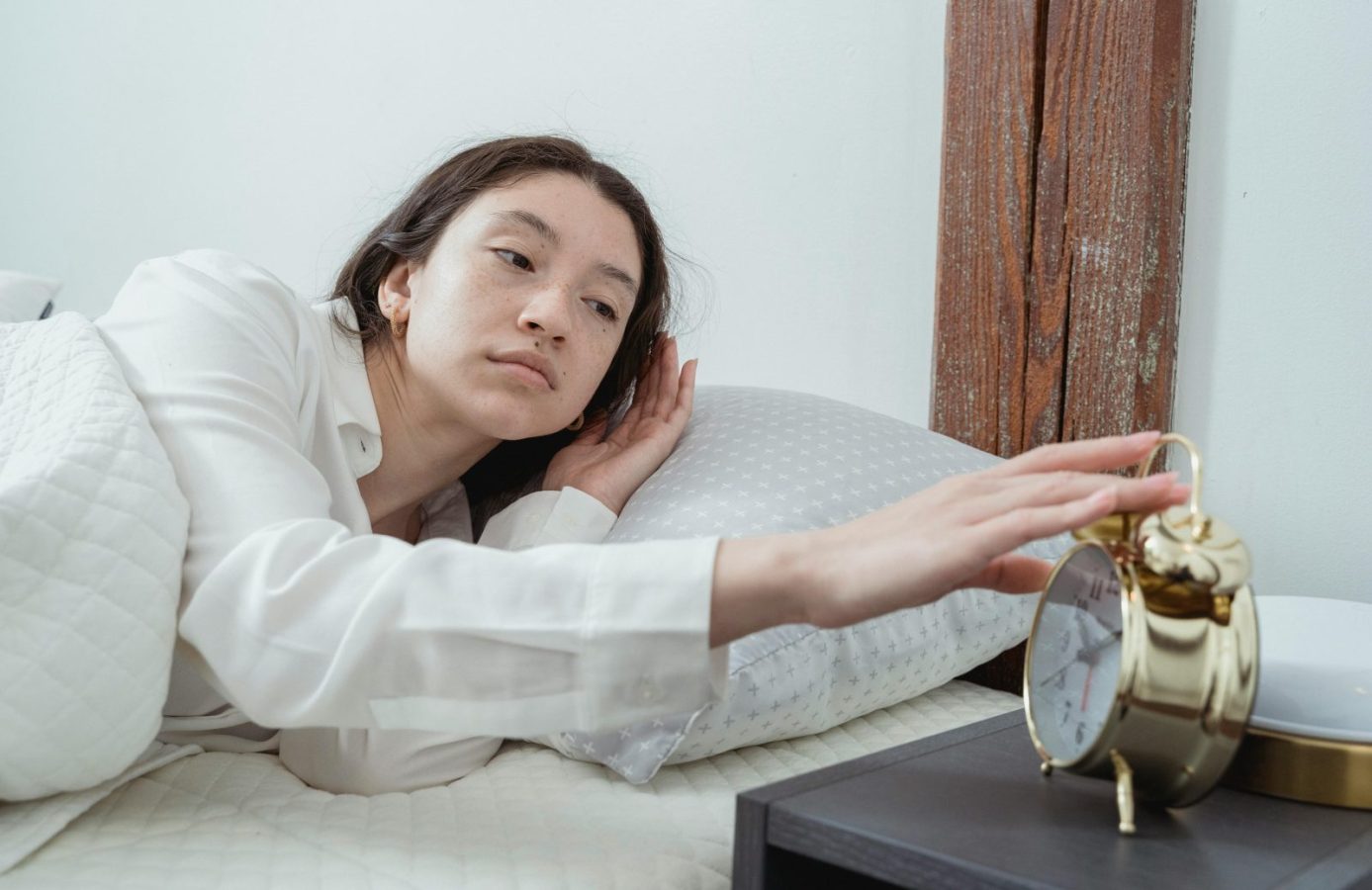Waking up tired usually comes from poor sleep quality, a misaligned body clock, hidden health issues, or lifestyle traps you can fix fast. Try a two-week reset to improve sleep depth, stabilize your schedule, and fuel mornings better.
- Keep one sleep window for 14 days and cut caffeine after lunch.
- Make your room cool, dark, quiet; get outdoor light within 30 minutes of waking.
- Eat a protein-forward breakfast and limit alcohol 3–4 hours before bed.
Sources: Harvard Health, Mayo Clinic, PubMed
If you keep searching morning fatigue causes, you’re not alone. Many people spend seven or eight hours in bed yet wake up foggy because sleep was fragmented, their schedule is erratic, or a fixable health factor is in the way. This guide shows the real reasons mornings feel heavy—and the exact steps that make you clear-headed again.
What are the most common morning fatigue causes?
The usual culprits are poor sleep quality, sleep disorders, late caffeine or alcohol, stress, hormonal shifts, and nutrient gaps like low iron or B12.
Seven or eight hours “on the clock” doesn’t guarantee restoration; frequent awakenings, overheating, or noise can slice the night into shallow pieces so you wake unrefreshed. Obstructive sleep apnea and insomnia are widespread and often missed. Lifestyle traps—screens late at night, heavy dinners, sedentary days—keep your nervous system too alert to enter deep sleep. If fatigue lingers despite good habits, check thyroid, iron, B12, vitamin D, and glucose with your clinician. See how better sleep ties to weight and energy in Best Exercises for Weight Loss After 40 and recovery tips in How to Improve Sleep After 40.
How does your body clock make mornings harder?
Irregular bed and wake times shift your circadian rhythm, so you try to get up when your brain still thinks it’s night.
Social jet lag—late nights and weekend sleep-ins—confuses the clock that drives melatonin and cortisol. Even if you “catch up,” Monday feels like travel jet lag. Anchor a single sleep window for two weeks; it’s the fastest non-medical fix and pairs well with morning light exposure.
Could a sleep disorder be behind your morning fatigue?
Loud snoring, gasping, dry mouth, morning headaches, or trouble staying asleep point to apnea or insomnia that crushes deep sleep.
Home sleep testing is straightforward and treatment often transforms mornings. If your partner hears snoring or you wake unrefreshed despite long nights, ask for an evaluation. For broader recovery strategies, see Why Do Muscles Hurt After Working Out?
Which habits at night quietly ruin your sleep?
Late caffeine, alcohol close to bedtime, and heavy dinners fragment the second half of the night and flatten your morning energy.
- Cut caffeine after lunch; taper over a week if headaches hit.
- Finish alcohol 3–4 hours before bed and keep it to one drink.
- Eat dinner earlier; if hungry later, choose a light protein snack.

What room setup makes deeper sleep more likely?
A cool, dark, quiet bedroom helps you stay in deep and REM stages long enough to wake restored.
- Keep the room slightly cool with breathable bedding.
- Block light with blackout curtains or a sleep mask.
- Reduce noise using a fan, earplugs, or white-noise.
- Charge your phone away from the bed to cut late scrolling.
Can nutrition and supplements help your mornings?
They support the plan—think protein at breakfast, magnesium-rich foods, omega-3s—and targeted supplements only after testing.
Ask your doctor about iron studies (ferritin), B12, vitamin D, and thyroid if fatigue persists. Learn more about nutrient support in Best Vitamins for Men Over 40 and the women’s counterpart on your site.

What quick morning habits flip your energy on?
Get natural light within 30 minutes, drink water before caffeine, and eat a protein-forward breakfast to stabilize energy.
- Open the curtains or step outside for a few minutes of daylight.
- Hydrate first; add a pinch of salt if you wake with headaches.
- Choose eggs, Greek yogurt, cottage cheese, or a protein smoothie.
- Add a five-minute mobility warm-up to signal “wake mode.”
When should you see a doctor about morning fatigue?
If two steady weeks of good habits don’t help—or if you snore, gasp, or feel persistently down—book a medical check.
Professionals can screen for apnea, anemia, thyroid issues, and metabolic factors. For broader lifestyle upgrades, see Healthy Lifestyle Tips After 40.
Many people underestimate how lifestyle choices during the day feed into morning fatigue causes. Skipping meals, sitting for hours without movement, or working under artificial light until late evening all affect the body’s rhythm. By the time morning arrives, your system hasn’t had a true reset, which explains why you still feel groggy even after spending enough hours in bed.
Another overlooked factor in morning fatigue causes is hydration. Going to sleep mildly dehydrated or drinking too little water during the day can leave you foggy the next morning. A simple fix like finishing a glass of water before bed and keeping one near your bedside can surprisingly improve how refreshed you feel at sunrise.
My personal experience: what finally worked
I spent a month waking dull despite “eight hours.” A strict sleep window and five minutes of balcony sunlight changed everything. I moved my last coffee to late morning, ate dinner earlier, and left my phone across the room; by day five my mornings felt clear again.
Related Articles
- Sleep After 40: What’s Normal and What’s a Problem
- Bad Sleep After 40: Causes and What to Do
- Why Do I Wake Up Tired?
- How to Stop Waking Up Tired
- Why Are Mornings So Hard for Me?
FAQ
Why am I so tired in the morning even after 8 hours?
Because your sleep was fragmented or mistimed, so you missed enough deep and REM stages.
Can coffee late in the day cause morning fatigue?
Yes—caffeine lingers for hours and pushes deep sleep later into the night.
How fast can I feel better after changing habits?
Most people notice clearer mornings within 7–14 days of consistent routines.
Do I need supplements to fix morning fatigue?
No, but correcting proven deficiencies (iron, B12, vitamin D) can help.
When should I see a doctor?
If snoring, gasping, low mood, or two steady weeks of changes don’t help, book a check.
Ready to wake up clear and energized?
Explore more practical guides on sleep, energy, and healthy habits after 40.

